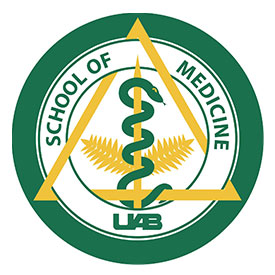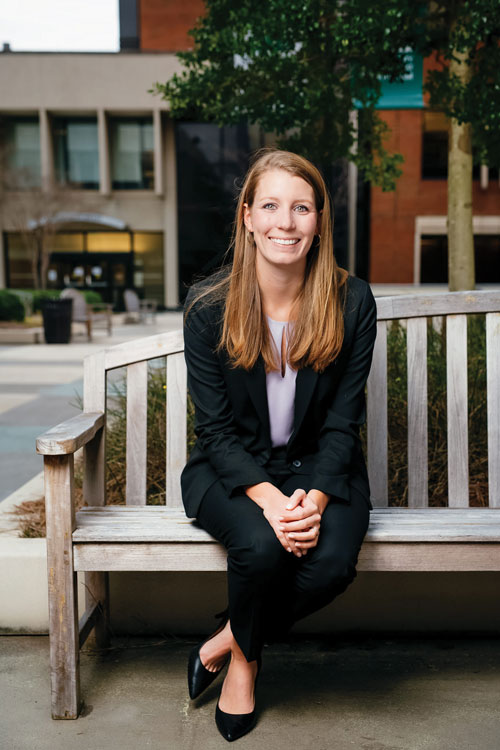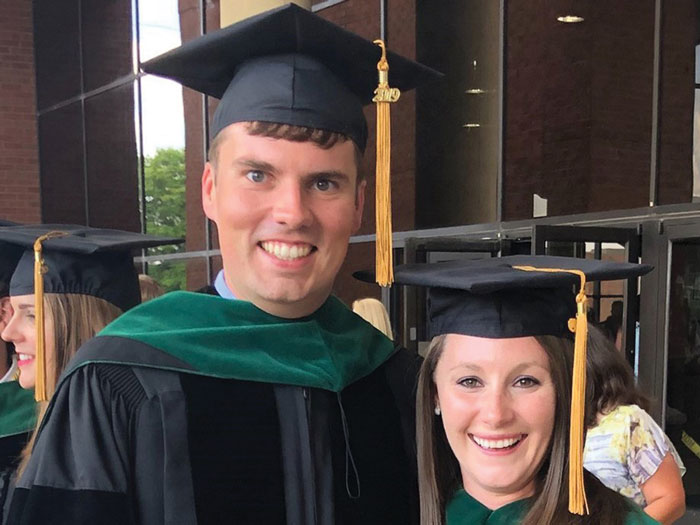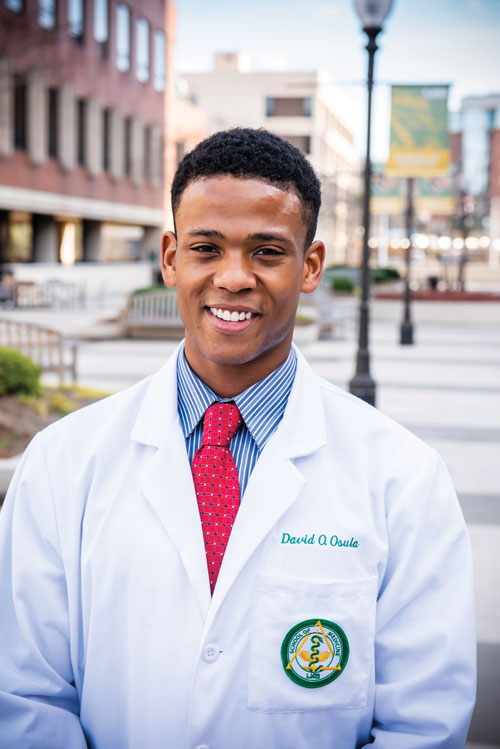 As medical training becomes more team-oriented, medical students are expected to learn to be not only skilled clinicians but also effective leaders. National medical and health care organizations gave several members of the 2019 graduating class unique opportunities to hone their leadership skills.
As medical training becomes more team-oriented, medical students are expected to learn to be not only skilled clinicians but also effective leaders. National medical and health care organizations gave several members of the 2019 graduating class unique opportunities to hone their leadership skills.
Learning to Lead
 Allison Montgomery DavisIn 2018, the American Medical Association (AMA) Foundation announced its new Leadership Development Institute (LDI), designed to identify and bring together a select group of medical students with strong leadership potential. The foundation chose only 10 medical students from countless applicants across the country.
Allison Montgomery DavisIn 2018, the American Medical Association (AMA) Foundation announced its new Leadership Development Institute (LDI), designed to identify and bring together a select group of medical students with strong leadership potential. The foundation chose only 10 medical students from countless applicants across the country.
When Laura Kezar, M.D.—then associate dean for students for the UAB School of Medicine—heard about the program she immediately thought of one particular student: Allison Montgomery Davis, then an MS4, who served as president of her class and as a student representative for the Association of American Medical Colleges’ Organization of Student Representatives.
Through group web conferences and a weekend retreat, the LDI gives students the opportunity to interact with leading physicians while also learning from one another. “The focus is on concrete leadership skills—providing a pathway to understand what it means to be a physician leader in all its various forms and hone the skills you need,” says Davis, who matched in OB/GYN at UAB. “I now have a network of peers who also want to be physician leaders and with whom I know I’ll continue to have relationships throughout my career, which is pretty exciting.”
With the well-recognized need to bring gender parity to the health care field—and academic medicine in particular—Davis says she was impressed by the AMA Foundation’s efforts to assemble a diverse inaugural LDI class in terms of gender (five women, five men), medical specialties, and geographic locations. “They were very intentional about considering people’s personal experiences—their perspectives on medicine and their passion for leadership.”
She says she believes that with gender balance in particular, the LDI is a positive reflection of the ways medicine has evolved. “It shows that the profession is more aware of it and the need to have an equal playing field,” Davis says. “In the past, I have had attendings who were on the fence about whether women should be surgeons—if a woman who wanted both a family and career could handle that.
“By far, I have had more women role models who said, ‘Yes, you can be a leader in academic medicine and still serve your patients well and have a family.’ It has been beneficial as a medical student to personally know women who do that on a day-to-day basis.”
Davis says she is excited to begin her residency in OB/GYN at UAB, and her ultimate goal is to have a robust clinical practice combined with work in academic medicine and research. She also says she wants to be involved in helping influence health care policy through patient and physician advocacy. Having grown up in Talladega, Alabama, Davis is passionate about improving access to care for patients in rural areas through telemedicine and other emerging technologies.
“I am thankful for the opportunity to stay at UAB for training, which I think will help shape my career moving forward,” she says.
All in the Family
 Chandler and Amanda StisherChandler Stisher, who matched into the UAB Huntsville Family Medicine Residency Program, is eager to explain what makes family medicine so exciting. “I feel like people don’t always understand what family medicine physicians do,” says Stisher. “They do a lot more than treat people for coughs and colds, and then refer patients to specialists for everything else. They can practice in a wide variety of settings; they can and do deliver babies; they practice sports medicine, and much more.”
Chandler and Amanda StisherChandler Stisher, who matched into the UAB Huntsville Family Medicine Residency Program, is eager to explain what makes family medicine so exciting. “I feel like people don’t always understand what family medicine physicians do,” says Stisher. “They do a lot more than treat people for coughs and colds, and then refer patients to specialists for everything else. They can practice in a wide variety of settings; they can and do deliver babies; they practice sports medicine, and much more.”
Stisher grew up in the small town of Baileyton, Alabama, where his own doctor—who also treated his mother and grandparents—inspired him with up-close, lifelong care. “I think having that broad scope of training and ability to treat patients throughout their lives is wonderful,” Stisher says. “By developing that relationship with the patient, we can look at all aspects of health care, including the social determinants of health. I think family doctors are some of the leaders in focusing on those kinds of things.”
Stisher received a one-year appointment this past year to be the only student to serve on the American Academy of Family Physicians’ (AAFP) board of directors, and his seat lasts until October 2019. He notes it is an honor to serve as an advocate for young and aspiring family doctors, bringing any concerns they may have to the table. Issues that matter most to them include work/life balance and reducing paperwork and administrative tasks that take time away from practicing medicine.
He says his fellow board members welcome that input. “Other board members know that medicine is changing,” he says. “They realize that young and aspiring physicians are going to shape what family medicine looks like in the future, and they value all perspectives.”
Stisher enrolled in the Rural Medicine Program—a jointly sponsored program of Auburn University’s College of Sciences and Mathematics and the UAB School of Medicine Huntsville Regional Medical Campus—in 2014 before entering the School of Medicine. He also pursued an MPH in the UAB School of Public Health. Stisher says he is excited to complete his residency in Huntsville with his wife, Amanda, who also matched into family medicine in Huntsville.
From early in his medical education, Stisher notes he also recognized the importance of leadership as a way to help shape the future of family medicine. From 2016-2017, both Chandler and Amanda served in the AAFP Foundation’s Family Medicine Leads Emerging Leader Institute. “To be selected for this as one of only 15 students around the country was an absolute honor,” he says. “To be educated and mentored by some of the greatest leaders in family medicine was an opportunity for which we are extremely grateful.”
Stisher says these types of activities help him view the bigger picture. “I think I would not enjoy medicine as much if I looked only at the immediate picture,” Stisher observes. “I try to look at the broader picture, and being involved in these kinds of activities helps me do that. I connect with students from around the country who have the same interests and same passions as I do. It rekindles the fire in me and reminds me why we all do this in the first place.”
Making a Mentor
 David OsulaDavid Osula, who matched in the internal medicine residency at the University of Texas Southwestern Medical School, has never forgotten the mentors who encouraged him, advised him, and helped him carve his own path. One is his father, who exemplifies for Osula what it means to have a strong work ethic and character. Another is a friend and pastor Osula met in college. “He shared with me one of my favorite pieces of advice I’ve ever received: Let your purpose be bigger than your person.”
David OsulaDavid Osula, who matched in the internal medicine residency at the University of Texas Southwestern Medical School, has never forgotten the mentors who encouraged him, advised him, and helped him carve his own path. One is his father, who exemplifies for Osula what it means to have a strong work ethic and character. Another is a friend and pastor Osula met in college. “He shared with me one of my favorite pieces of advice I’ve ever received: Let your purpose be bigger than your person.”
Those words resonated with Osula, who has dedicated countless hours to paying it forward. In 2016, the Albert Schweitzer Fellowship program recognized his dedication to service by naming him one of the first Schweitzer Fellows of the then newly formed Alabama Chapter.
The Schweitzer Fellowship challenges graduate students to spend at least a year addressing social factors that impact public health. For Osula, mentorship—particularly on a large scale, with a program that could continue after he was gone—was the obvious choice. During his first year of medical school, he started a mentorship program at Carver High School’s Academy of Health Sciences, which fosters interest in health care careers among high school students, and recruited other School of Medicine students to join him. The mentors conduct workshops with the students and talk with them one-on-one about life challenges and career aspirations.
“I remember times in my own life when I wanted to do something but didn’t know how to get there, because I hadn’t walked that path before,” he says. “It’s so valuable to have someone who has been there to talk you through it.”
Karla Williams, M.D., faculty advisor for the School of Medicine Chapter of the Birmingham Academy of Health Sciences, says Osula’s commitment stood out from the beginning. “He has a passion for helping those coming up after him and letting them know that having success in whatever field you choose is attainable,” Williams notes. Williams says they hope to expand the Carver mentorship program to other high schools and recruit student mentors from other health professions schools, particularly nursing.
Osula traveled farther for another outreach initiative when he studied abroad in Peru this past February. While there, he worked with an infectious disease physician at a local hospital and treated patients at several free primary care clinics. “I wanted to be exposed to a different type of health care experience than I might see here at UAB,” he says. “I also wanted to develop my Spanish-speaking skills; that’s important to me because of the growing population of Spanish-speaking patients here in the U.S.”
In the midst of so much activity, Osula married Sarah Bowhay this past spring. She completed a master’s degree in clinical laboratory science and will begin her career in Dallas while Osula conducts his residency.
As for the mentorship program he began at Carver, he retains an advisory role. “We pass the leadership baton each year to a new group of students,” he says. “So I basically advise in terms of vision—here are some things we should think about; here are some goals; these are some things we could do based on past experiences. But I plan to be involved with it in some respect, even from afar.”
By Rosalind Fournier